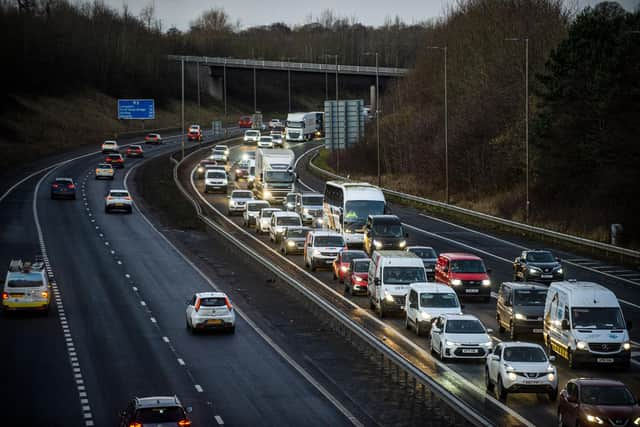Drop in car use over Covid helps meet greenhouse gas goals - but where to now?
As our behaviours changed and people stayed at home to avoid infection, cars remained in driveways, roads became eerily quiet and trains and buses travelled on reduced services with barely a passenger on board.
New figures show that emissions from domestic transport dropped by 20.9 per cent from 2019 to 2020. A drop in vehicles on the road, particularly during the first lockdown, was a key driver in the reduction, campaigners say.
Advertisement
Hide AdAdvertisement
Hide AdIt is regrettable several times over that the fight against climate emergency in this country was greatly aided by the biggest health emergency of our times, but it illuminates where we need to be on changing the way we travel.
But the forced change in the way we lived is unlikely to lead to lasting change, campaigners have warned, given early air pollution figures from 2021 suggest that overall polluting activity is likely to significantly increase as we move out of the pandemic.
So we are at risk of going back to where we were. Now, when we look at public transport as a proper and reliable alternative to car use, we know we are all too often going nowhere at all.
Putting the ScotRail debacle to one side, we know that bus travel – which in Scotland still transports three times as many people as trains - is struggling to bounce back from the impact of Covid-19.
Some bus services reduced during the pandemic have never returned. Weekend and evening travel out of some villages and small towns in the evenings feels all too often impossible. Driving our own cars, unfortunately, remains a go to option when other options fail to exist.


The Confederation of Passenger Transport (CPT), which represents bus and coach operators, has warned that worse could still come. It believes £40 million of support to help them cover lost revenue following the Covid pandemic will end at the end of July, earlier than expected.
One bus firm said it could lead to evening, Sunday or even entire routes being scrapped. This is a reality felt already by many as Scotland struggles to meet its ideals where sustainable public transport is a real, desirable option for all.